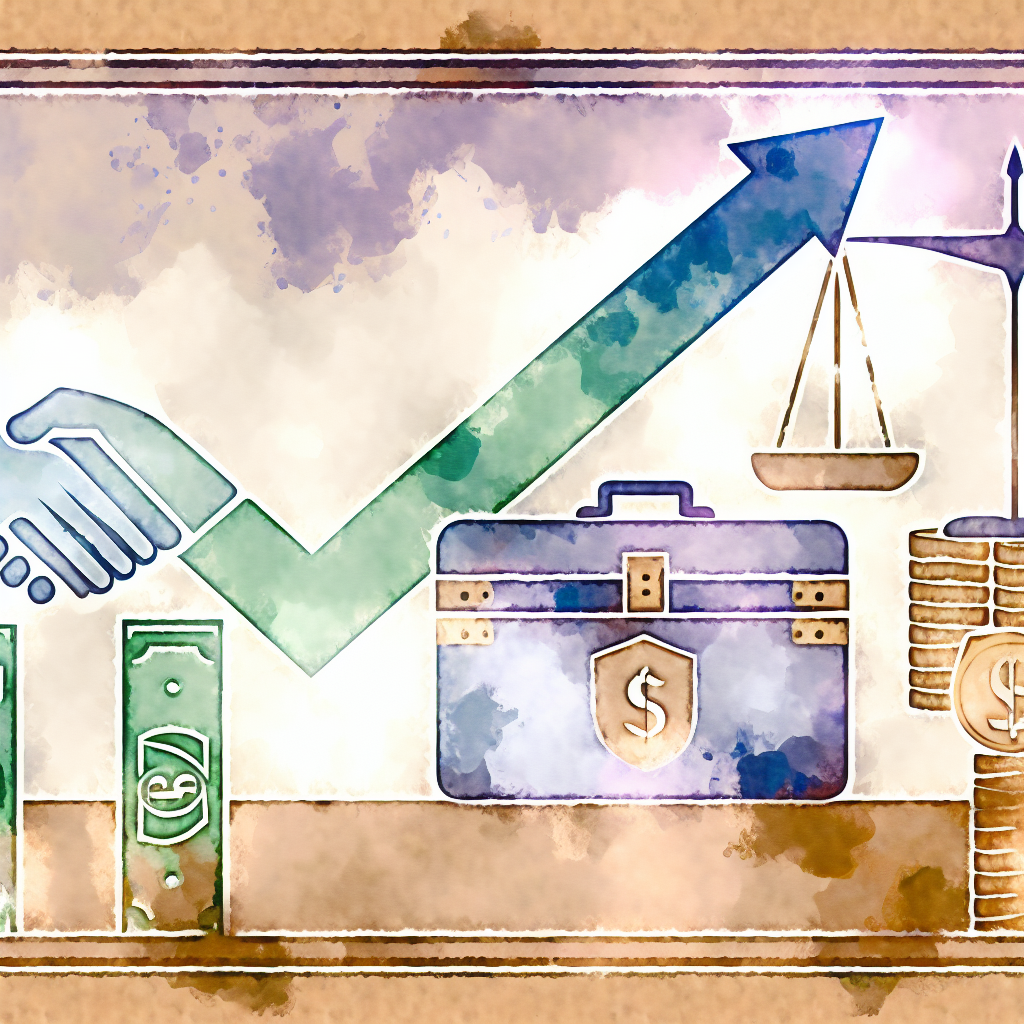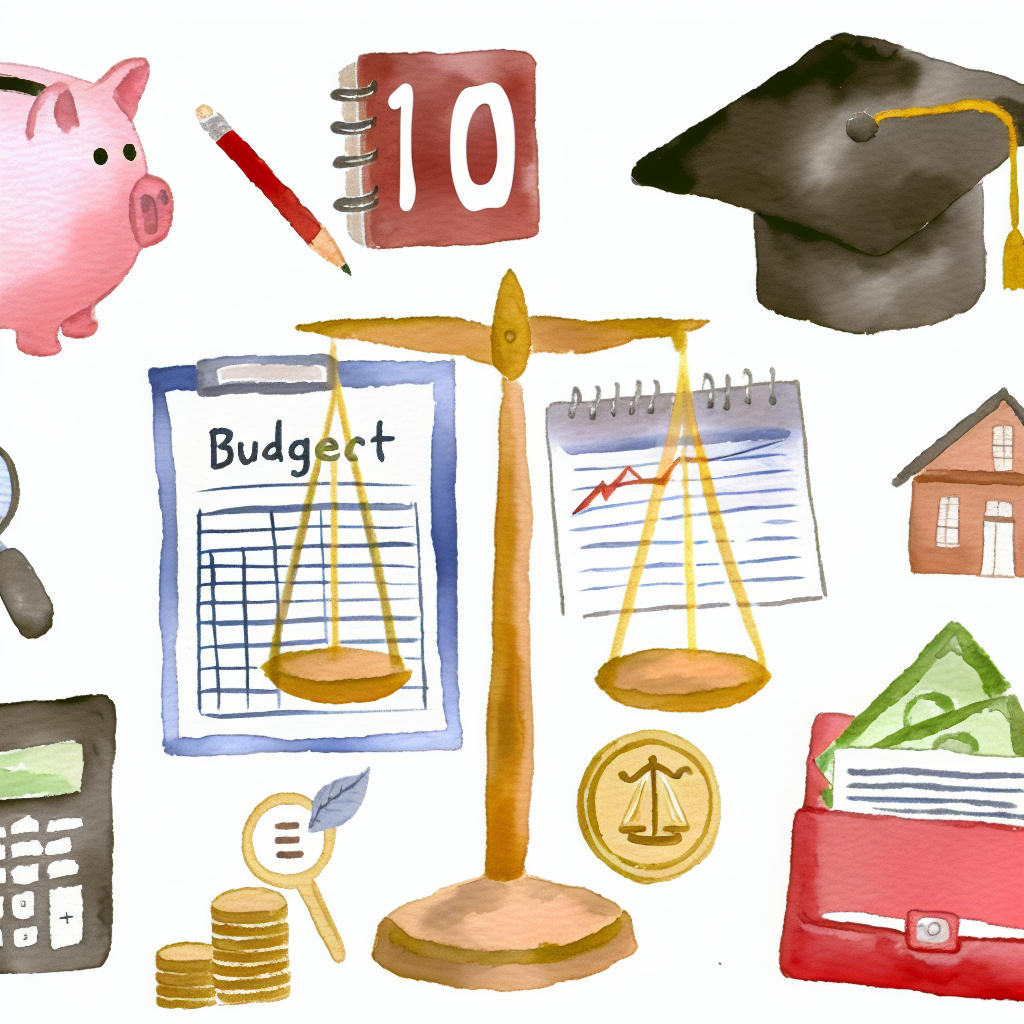Introduction to Credit: What It Is and Why It Matters
Credit is a fundamental component of modern financial systems, underpinning various aspects of personal finance. Essentially, credit is the ability to borrow money or access goods or services with the understanding that you’ll pay later. It isn’t just limited to credit cards; it spans mortgages, auto loans, student loans, and even utility bills. For young adults or those with no credit history, understanding credit’s nuances is crucial for long-term financial wellness.
Why does credit matter? Having good credit can be a financial game-changer. It affects your ability to secure loans, rent apartments, or even land a job. Businesses, landlords, and employers often review credit reports to gauge how responsible a person is with money. The better your credit, the lower your interest rates will be, translating into significant savings over time.
Building credit from a young age offers immense benefits. Starting early allows for a more extended period to establish a solid credit history, which is critical when it comes to securing loans for significant life events such as buying a home or starting a business. But what if you have no credit history? The good news is, with a bit of knowledge and discipline, anyone can start building a strong credit foundation.
This article aims to guide young adults and those with no credit history on how to build and maintain good credit. We’ll explore the basics of credit scores, how to get your first credit card, the importance of student loans, tips for using credit responsibly, and much more. Let’s dive in and demystify the world of credit.
Understanding Credit Scores: The Basics
Your credit score is a numerical representation of your creditworthiness, usually ranging from 300 to 850. This number is derived from various factors in your credit report and is used by lenders to decide if you’re a good candidate for credit. The higher your score, the lower the risk for lenders, making it easier for you to get approved for loans and credit cards with favorable terms.
The primary factors influencing your credit score include:
- Payment History (35%): This is the most critical factor. Late payments, defaults, and bankruptcies can severely impact your score.
- Amounts Owed (30%): This refers to your credit utilization ratio, which is the amount of credit you’re using compared to your total available credit. Lowering your utilization rate can boost your credit score.
- Length of Credit History (15%): The longer your credit history, the better. It shows lenders your long-term creditworthiness.
- Credit Mix (10%): Having various types of credit accounts (credit cards, installment loans, mortgages) can be beneficial.
- New Credit (10%): Opening many new accounts in a short time can be seen as risky behavior.
Here’s a quick look in the form of a table for a clearer understanding:
| Factor | Percentage Impact |
|---|---|
| Payment History | 35% |
| Amounts Owed | 30% |
| Length of Credit | 15% |
| Credit Mix | 10% |
| New Credit | 10% |
Understanding these components can help you make strategic moves to improve your credit score over time. Always keep in mind that building a good credit score doesn’t happen overnight—it takes time and consistent effort.
The Importance of Starting Early for Young Adults
Building credit early can significantly impact your financial future. Young adults who start gaining credit experience reap long-term rewards, including lower interest rates and easier approvals for loans and rental agreements. The earlier you start, the more time you have to establish a solid credit history, an invaluable asset for future financial endeavors.
Starting early has several advantages:
- Long Credit History: Credit history length is a key component of your credit score. The sooner you start, the more seasoned your credit history will appear to lenders.
- Experience with Credit: Using credit responsibly from a young age teaches valuable financial lessons and builds good habits that last a lifetime.
- Preparation for Major Life Purchases: Good credit is crucial when it comes time to buy a car or a house, or to secure business loans. Starting young gives you a head start.
It’s essential for young adults to understand the risks and responsibilities that come with credit. This knowledge can prevent them from making costly mistakes that could impact their credit scores for years to come. There’s no substitute for good credit when it comes to making large purchases or obtaining lower interest rates on loans.
In summary, the advantages of starting to build credit early far outweigh the cons, but it requires careful planning and responsible use. With time and experience, you’ll be well on your way to a prosperous financial future.
How to Get Your First Credit Card
Getting your first credit card is a significant milestone in building your credit history. However, it’s vital to approach this step wisely to avoid pitfalls. Here are a few steps to help you get started on the right foot:
1. Research Your Options
Start by researching credit cards that are designed for individuals with no credit history. Many financial institutions offer “starter” or “student” credit cards with lower credit limits and simpler approval requirements. Look for cards with no annual fee and a low-interest rate.
2. Apply for a Card
Once you’ve selected a credit card that suits your needs, fill out the application. Be prepared to provide basic personal information, such as your Social Security number, address, and proof of income. Approval criteria can vary, but having a steady income can bolster your application.
3. Use Your Card Wisely
Upon receiving your first credit card, use it responsibly. Make small purchases and pay off the balance in full each month. This practice helps you avoid interest charges and shows lenders that you can handle credit responsibly.
Here’s a comparison table for different types of first-time credit cards:
| Card Type | Description | Availability |
|---|---|---|
| Student Credit Card | Specifically designed for college students with no credit history | Common |
| Secured Credit Card | Requires a security deposit as collateral, which serves as your credit limit | Very Common |
| Retail Store Card | Easier approval, but higher interest rates; limited to specific stores | Common |
Establishing your first line of credit through a credit card can offer a controlled environment to start building your credit score. Responsible usage, like timely payments and low balances, can elevate your credit history and set the stage for future financial success.
Using Secured Credit Cards to Build Credit
Secured credit cards offer a practical solution for individuals who have no credit history or are rebuilding their credit. Unlike traditional credit cards, secured cards require a security deposit that acts as collateral and determines your credit limit. This deposit minimizes the risk for the issuer, making these cards easier to obtain.
Advantages of Secured Credit Cards
- Accessibility: Easier approval process compared to unsecured cards.
- Controlled Credit Limit: Your deposit serves as your credit limit, reducing the risk of overspending.
- Credit Building: Timely payments on a secured credit card are reported to credit bureaus, helping you build or rebuild credit.
How to Choose a Secured Credit Card
When selecting a secured credit card, consider the following factors:
- Annual Fees: Some secured cards come with annual fees, while others do not.
- Interest Rates: Look for a card with a low-interest rate.
- Credit Reporting: Ensure that the card issuer reports to all three major credit bureaus.
Using Your Secured Card Effectively
To make the most of your secured credit card:
- Make Timely Payments: Always pay your bill on time to positively impact your credit score.
- Keep Balances Low: Aim to utilize no more than 30% of your credit limit to maintain a healthy credit utilization ratio.
- Monitor Your Credit Score: Regularly check your credit score to track your progress.
Overall, secured credit cards offer an excellent opportunity to build credit for those with no credit history. Through responsible use, these cards can pave the way for better financial opportunities in the future.
The Role of Student Loans in Establishing Credit
Student loans can be a double-edged sword when it comes to credit. On one hand, they offer a means to build your credit history positively. On the other hand, mismanaging these loans can lead to long-term financial strains and a negative impact on your credit score.
How Student Loans Can Help Build Credit
- Diverse Credit Mix: Student loans add diversity to your credit accounts, which can benefit your credit score.
- Payment History: Making timely student loan payments builds a positive payment history, a significant factor in your credit score.
- Length of Credit History: These loans often span years, contributing to a longer credit history.
Managing Student Loans Responsibly
To use student loans effectively for credit building, consider these tips:
- Timely Payments: Never miss a payment. Set reminders or enable automatic payments to ensure timely payments.
- Understand Repayment Options: Familiarize yourself with various repayment plans, including income-driven repayment plans, to find the best fit.
- Deferment and Forbearance: If you’re unable to make payments, explore deferment or forbearance options to avoid negative impacts on your credit score.
Potential Pitfalls
While student loans can help establish credit, they come with risks:
- High Debt Burden: Taking on more debt than necessary can complicate future financial goals.
- Impact on Financial Planning: Significant student loan debt can hamper your ability to save for other important milestones, such as buying a home or retirement.
With careful management, student loans can be a valuable tool for building credit, helping you establish a solid foundation for future financial health.
Tips for Using Credit Cards Responsibly
Using credit cards responsibly is essential for building and maintaining good credit. Irresponsible usage can lead to debt accumulation, high interest rates, and damage to your credit score. By following these guidelines, you can make the most of your credit cards without falling into common pitfalls.
Create a Budget
Start by setting a realistic budget that includes your credit card spending. This practice ensures that you do not overspend and can pay off your credit card balance each month. A budget helps you prioritize necessary expenses while curbing discretionary spending.
Pay in Full Each Month
Whenever possible, pay off your entire credit card balance every month. This strategy avoids interest charges and shows lenders that you can manage your debts effectively. Additionally, paying in full helps you maintain a low credit utilization ratio.
Monitor Your Spending
Regularly reviewing your credit card statements helps you keep track of your spending and detect any potential fraudulent activity. Many credit card companies offer online account management tools that allow you to monitor your transactions in real time.
Here’s a list of responsible credit card practices:
- Set up automatic payments or calendar reminders for due dates.
- Use your credit card only for budgeted expenses, avoiding impulse purchases.
- Keep your credit utilization below 30% of your credit limit.
- Review your statements monthly for accuracy and disputes if necessary.
By following these practices, you can use your credit cards to build your credit responsibly and avoid the common traps that lead to financial stress.
How to Monitor Your Credit Score
Monitoring your credit score is a vital part of maintaining and improving your financial health. Regular checks allow you to track your progress, catch errors, and detect identity theft early. Here’s how to effectively monitor your credit score:
Use Free Services
Several services offer free credit score monitoring. Websites like Credit Karma, AnnualCreditReport.com, and Experian provide access to your credit score and reports without any cost. Enrolling in these services enables you to review your credit score regularly.
Understand Your Credit Report
Your credit report contains detailed information about your credit accounts and payment history. It is essential to understand what is included in your report:
- Personal Information: Name, address, Social Security number, and employment data.
- Credit Accounts: Details about your credit cards, loans, and mortgages.
- Inquiries: Information on companies that have checked your credit.
- Public Records: Bankruptcies, tax liens, and judgments.
Regular Monitoring Routine
Set a routine for checking your credit score and report. Some people prefer checking monthly, while others do it quarterly. Consistency is key. If you notice any discrepancies or unfamiliar accounts, take immediate action by contacting the credit bureau and disputing the errors.
Here’s a quick table to summarize tools for monitoring your credit score:
| Monitoring Tool | Type | Cost |
|---|---|---|
| Credit Karma | Website | Free |
| AnnualCreditReport.com | Website | Free |
| Experian | Website | Free |
| MyFICO | Website | Paid |
| Bank/Credit Card Statements | Service | Free |
By regularly monitoring your credit score and understanding your credit report, you can take proactive steps to maintain and improve your financial health.
Common Mistakes to Avoid When Building Credit
Building credit can be straightforward if you avoid common pitfalls. Missteps can result in damaging your credit and setting back your financial goals. Here are some of the most common mistakes and how to avoid them:
1. Missing Payments
Late or missed payments can severely impact your credit score. Payment history accounts for 35% of your credit score, making it the most crucial factor. Set up automatic payments or reminders to ensure you never miss a due date.
2. High Credit Utilization
Maintaining a high credit utilization ratio (i.e., using a large percentage of your available credit) can negatively affect your credit score. Aim to keep your credit utilization below 30%. If you’re close to your limit, pay down balances to free up available credit.
3. Closing Old Accounts
Closing old credit accounts can shorten your credit history and reduce your overall credit limit, both of which can harm your credit score. It’s usually better to keep old accounts open, even if you don’t use them frequently.
Additional Common Mistakes:
- Applying for Too Much Credit at Once: Each application results in a hard inquiry, which can lower your score.
- Ignoring Credit Reports: Failing to review your credit report regularly can result in missed errors or fraudulent activities that could negatively impact your credit.
- Over-reliance on Credit Cards: Running up high balances and only making minimum payments can lead to mounting debt and higher interest charges.
By understanding and avoiding these common mistakes, you can pave a smoother path toward building good credit and securing your financial future.
How to Leverage Rental Payments for Credit
Traditionally, rental payments were not included in credit reports, but things are changing. Reporting your rental payments can be a smart way to build or improve your credit score. Here’s how you can leverage rental payments for credit:
Use Rent Reporting Services
Several services now allow tenants to report their rental payments to the major credit bureaus. Some popular options include:
- Rental Kharma: Reports your rent payments to TransUnion and Equifax.
- Rent Reporters: Also sends your payment information to the major credit bureaus.
- Experian RentBureau: Partners with property management companies to include your rent payment history in your credit file.
Benefits of Reporting Rental Payments
- Credit Building: Regular, on-time rental payments can positively affect your credit score.
- Payment History: Adds a consistent line of positive payment history to your credit report.
- Diversification: Enhances your credit profile by adding non-traditional credit accounts.
Steps to Start Reporting
- Choose a Service: Research and select a rent reporting service that suits your needs.
- Register: Sign up and provide your rental payment information.
- Notify Your Landlord: Some services require landlord verification. Inform your landlord to expect this.
- Payment Verification: Ensure timely rent payments to build a positive rental credit history.
Considering that housing is a significant expense for most people, leveraging rental payments can be an effective strategy to build credit, especially for those without traditional credit histories.
Final Thoughts: Maintaining Good Credit Habits for the Future
Building credit is just the beginning; maintaining good credit is a lifelong endeavor. Establishing responsible financial habits early on can set the foundation for a stable and prosperous financial future. Here are some final thoughts on how to maintain good credit habits:
Stay Disciplined
Consistency is key when it comes to maintaining good credit. Keep up with your payments, avoid unnecessary debt, and routinely monitor your credit. Practice disciplined spending and budgeting to ensure you live within your means.
Keep Learning
Financial literacy is a journey, not a destination. Stay informed about changes in credit reporting, new financial products, and best practices for credit management. Continuous learning can help you make better financial decisions over time.
Plan for the Long Term
Good credit can open doors to significant opportunities like homeownership, starting a business, or even retirement planning. Setting long-term financial goals can keep you motivated to maintain good credit habits. Whether you are saving for a down payment, planning a European vacation, or aiming for financial independence, good credit allows for more financial flexibility.
By integrating these habits into your daily life, you can maintain a good credit score and achieve your financial goals. Good credit management is a journey that yields lifelong benefits, helping you navigate life’s financial challenges with confidence.
Recap
Here are the main points covered in this article:
- Understanding Credit: Credit is vital for financial health, affecting loans, rentals, and even job opportunities.
- Credit Scores: Comprising factors like payment history, amounts owed, and length of credit history.
- Starting Early: Benefits young adults by establishing a longer credit history and better financial knowledge.
- First Credit Card: Researching and selecting the right starter card is crucial.
- Secured Credit Cards: Provide an accessible way to build or rebuild credit with a security deposit.
- Student Loans: Can help build credit if managed responsibly.
- Responsible Credit Use: Essential for maintaining good credit and avoiding debt traps.
- Credit Monitoring: Regular checks can catch errors and track improvements.
- Avoiding Mistakes: Missing payments, high credit utilization, and closing old accounts are risky.
- Leverage Rental Payments: Reporting rent can diversify and improve your credit history.
- Maintaining Good Credit: Consistency, continuous learning, and long-term planning are key for sustained good credit.
FAQ
Q1: Why is having good credit important?
A: Good credit is essential for obtaining favorable loan terms, lower interest rates, and easier approval for rental agreements and employment opportunities.
Q2: How long does it take to build a good credit score from scratch?
A: Building a good credit score typically takes at least six months of credit activity. Consistent, responsible credit use can lead to a strong score over a few years.
Q3: Can I build credit if I don’t have a credit card?
A: Yes, you can build credit through other means such as paying student loans, auto loans, and even using rent and utilities payment reporting services.
Q4: What’s the difference between a secured and unsecured credit card?
A: A secured credit card requires a security deposit, which serves as your credit limit. An unsecured credit card does not require a deposit and extends credit based on your creditworthiness.
Q5: How can student loans impact my credit score?
A: Timely payments on student loans can positively impact your credit score by establishing a good payment history and lengthening your credit history.











